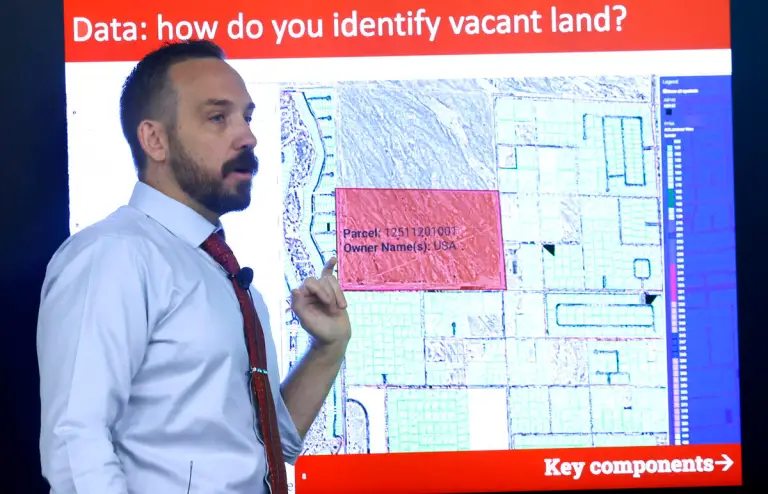The Southern Nevada Public Lands Management Act (SNPLMA), passed by Congress in 1998, was intended to facilitate the transfer of federal lands within Clark County to the private sector for development. However, according to Mike Ford, a former Bureau of Land Management (BLM) official and current consultant, the law has not met its original goals. Instead of decreasing, federal land holdings in Nevada have actually increased since the act’s passage, with BLM still controlling about 90 percent of land in the Las Vegas Valley. Land sales have been infrequent, and prices set by the BLM are often considered too high by private developers.
Shawn McCoy, director of UNLV’s Lied Center for Real Estate, pointed out that Clark County has around 90,000 acres of land suitable for development within the SNPLMA disposal boundary. However, land constraints, high costs, and slow federal land releases have contributed to elevated housing prices and limited opportunities for new residential or commercial projects. As Southern Nevada’s population is projected to grow by nearly 388,000 people over the next decade, these constraints could worsen housing affordability and overall quality of life, especially for low-income residents.
The Las Vegas real estate market is experiencing a slowdown. While home prices remain near record highs, sales volume has declined, partially because mortgage rates remain higher than their pandemic-era lows, discouraging homeowners from selling. Elevated construction and labor costs, plus tariff uncertainties, have also reduced new homebuilding.
Commercial real estate is likewise struggling, with high industrial vacancies and a dried-up pipeline for new multifamily projects after the pandemic-era boom. Additionally, a slowdown in tourism and gaming in 2025 has led to job losses in these key sectors, further impacting the regional economy.
Former Henderson Mayor and Clark County Commissioner James Gibson emphasized that BLM’s control over regional land remains a fundamental challenge for Southern Nevada’s economic growth and real estate development. He stressed the importance of collaboration with the BLM’s local office and the need for effective federal legislation to address these land use issues, which have resisted solutions despite repeated attempts from both political parties.

























